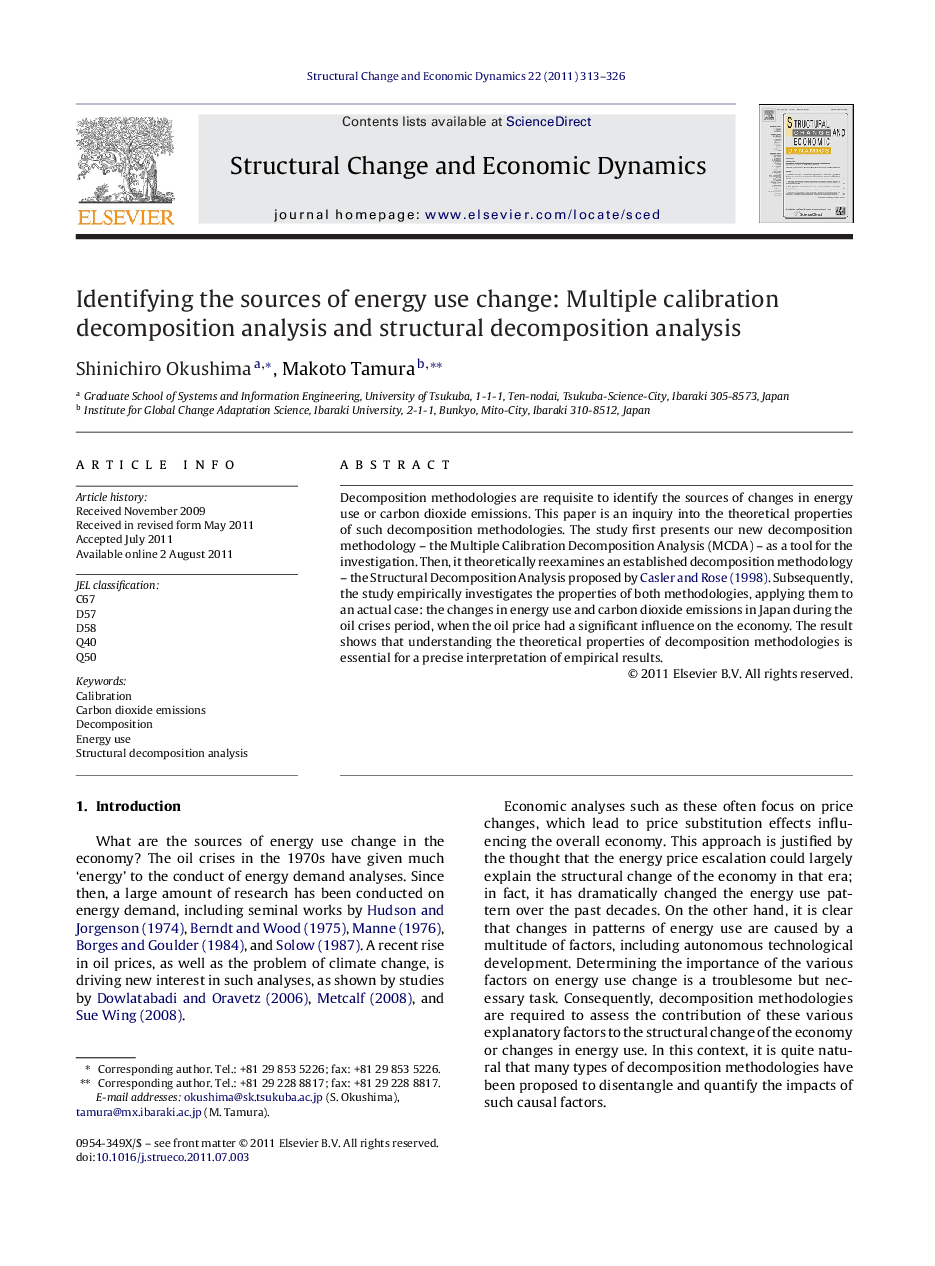| Article ID | Journal | Published Year | Pages | File Type |
|---|---|---|---|---|
| 988198 | Structural Change and Economic Dynamics | 2011 | 14 Pages |
Decomposition methodologies are requisite to identify the sources of changes in energy use or carbon dioxide emissions. This paper is an inquiry into the theoretical properties of such decomposition methodologies. The study first presents our new decomposition methodology – the Multiple Calibration Decomposition Analysis (MCDA) – as a tool for the investigation. Then, it theoretically reexamines an established decomposition methodology – the Structural Decomposition Analysis proposed by Casler and Rose (1998). Subsequently, the study empirically investigates the properties of both methodologies, applying them to an actual case: the changes in energy use and carbon dioxide emissions in Japan during the oil crises period, when the oil price had a significant influence on the economy. The result shows that understanding the theoretical properties of decomposition methodologies is essential for a precise interpretation of empirical results.
► We investigate the theoretical properties of decomposition methodologies. ► We present our new decomposition methodology, the MCDA, and compare it with the SDA. ► We evaluate the sources of changes in energy use and CO2 emissions in Japan. ► Understanding the properties is essential for precise interpretation of the results.
